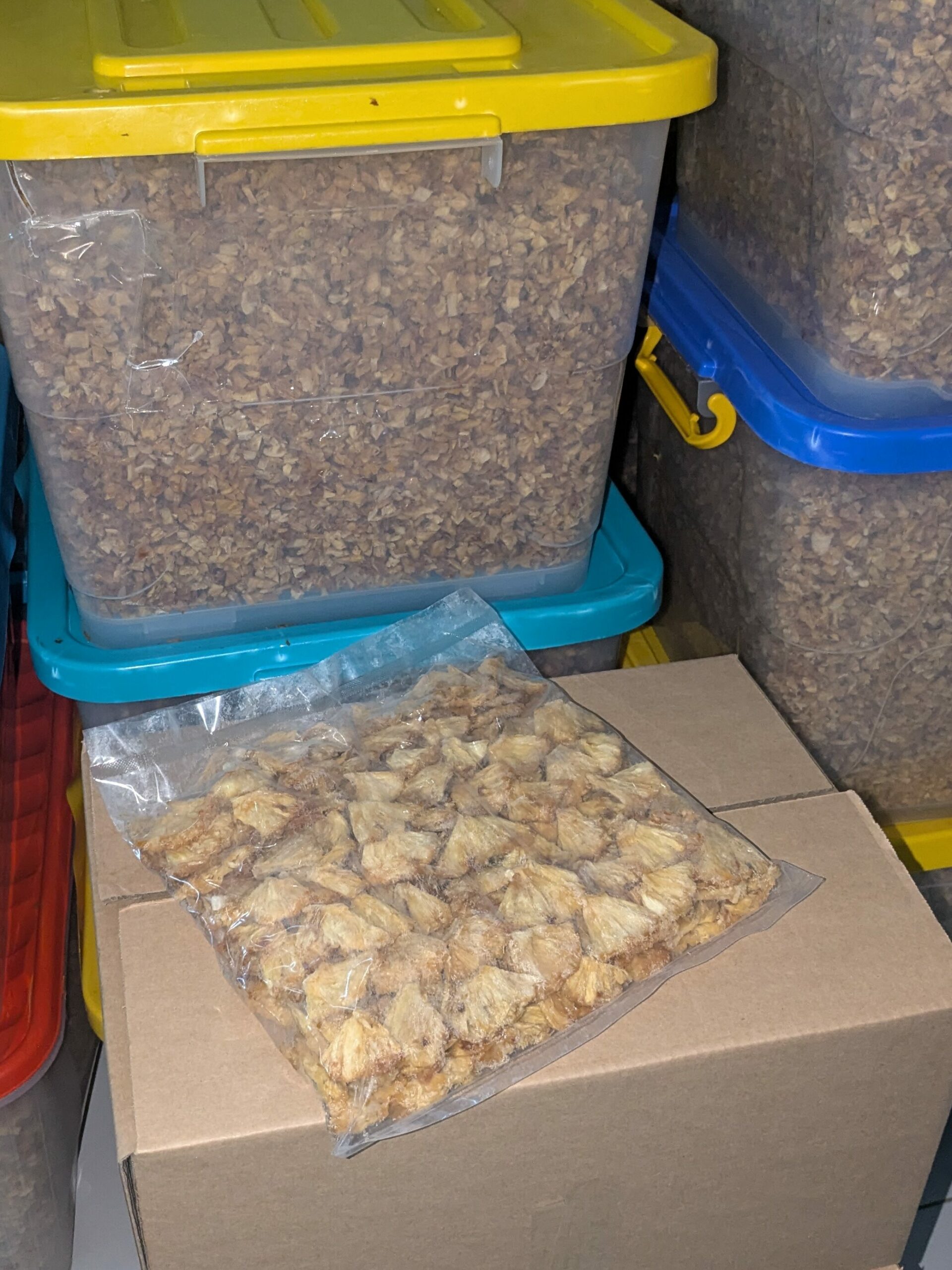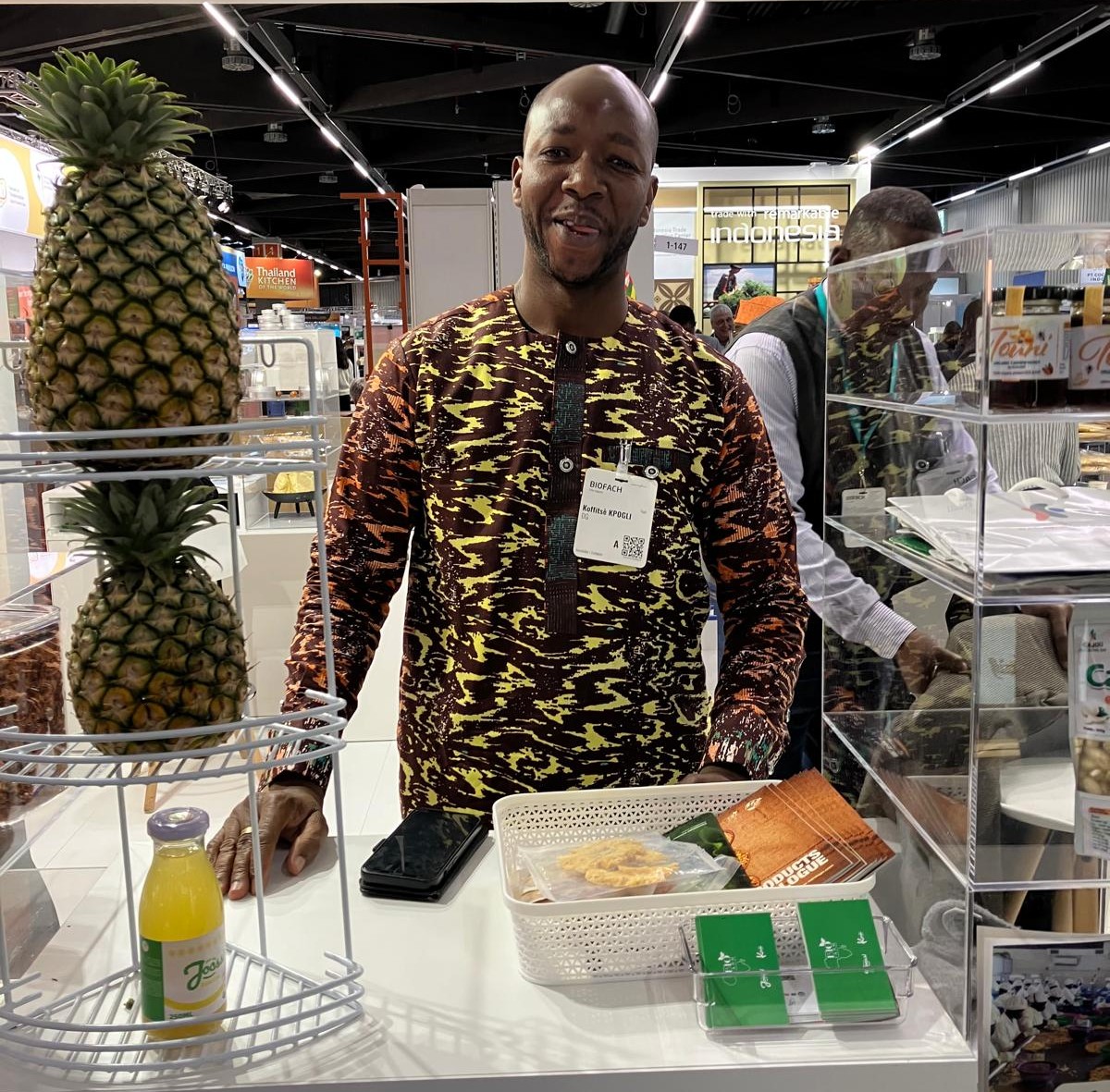An ambitious Togolese entrepreneur shares his business journey and how an Alliance project introducing electronic phytosanitary certification is helping him in achieving his export ambitions.
In 2011, an agricultural engineer began working for an organic soybean producer in his native Togo. Four years later, Koffitse Kpogli felt confident enough to go it alone.
“We believed in the growth potential of the sector, and we also believed we could do things better, so we set up Synergie d’Action du Millénaire (SAM), working with farmers and supervisors skilled in producing organic soybeans, pineapple, and hibiscus,” Mr Kpogli said.
First introduced into Togo during the 1980s to bolster food security, over the last decade soybeans have become an increasingly important export commodity, prized for their high protein content. Worldwide, the organic soybean market is growing rapidly and is expected to double in value from US$ 1.7 billion in 2024 to US$ 3.4 billion by 2030, with heavy demand in the food and beverage, pet food, and personal care industries.
Initially, SAM concentrated on the domestic market but in 2017 it began shipping unprocessed organic soybeans to an animal feed manufacturer in France. This set the export ball rolling and SAM expanded production capacity of organic soybeans and fresh fruit from 300 tonnes in 2015 to 10,000 tonnes, exporting 8,000 tonnes.
Attaining organic standards can be difficult and SAM was forced to reject significant quantities of pineapples on quality control grounds, leaving growers out of pocket.

“This was a concern for us because we are first and foremost the sons of farmers,” Mr Kpogli said. “So, we started to think about what we could do to improve this situation to make farmers more money and minimise waste.”
While exhibiting at a German trade show in 2019, several buyers asked Kpogli about the availability of dried pineapple-based products. This prompted him to create a separate company, Bio Farm Trading, with a view to attracting partners to co-finance a processing unit for desiccating fruit.
“Initially, we wanted to do this through SAM, but we felt that new projects like this one entailed new risk, so we needed to create a separate structure to minimise the exposure of our main business and provide investment transparency,” Mr Kpogli explained.
External investors came on board and in June 2022, Bio Farm Trading began processing dried pineapple. In tandem, it secured the necessary certification, enabling it to ship its first container-load to the United States that December. The company is also exporting to France and Germany and is currently working to triple its processing capacity. Combined, SAM and Bio Farm Trading have around 100 permanent employees engaged in various activities including sorting, drying, administration, logistics, and training for producers on meeting organic standards.

Both companies are reaping the benefits of electronic phytosanitary certification after the Alliance, in partnership with the Islamic Centre for Development of Trade (ICDT), supported Togo in adopting the International Plant Protection Convention (IPPC) ePhyto Solution, enabling the exchange of electronic phytosanitary certificates, or ePhytos, with trading partners through a central hub, quickly, accurately and at low cost.
“Previously, we had to spend a lot of time on paperwork and travel, with a minimum of two trips to submit an application and then collect it,” Mr Kpogli explained. “We continue to have other challenges in exporting our produce but thankfully the time and cost involved in obtaining phytosanitary certificates is now a thing of the past. We now handle everything from our office, from document submission to payment, to document receipt, which we can send to the customer.”
The Alliance project contributed directly to the bottom line, “The process has been shortened compared to the time we used to spend on travel and all that – today we don’t have to do that anymore.”


